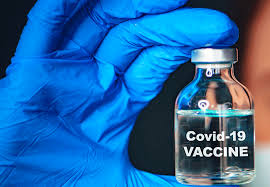It said the vaccine had proven 90 per cent effective in preventing COVID-19 symptoms and did not produce adverse side effects among thousands of volunteers.
On Wednesday the companies announced further trial results, showing the vaccine to be 95 per cent effective.
“Efficacy was consistent across age, gender, race and ethnicity demographics,” the company said.
Pfizer is currently seeking Emergency Use Authorization from the United States Food and Drug Administration and expects to roll out 1.3 billion doses by the end of next year.
On Monday, the United States biotech firm, Moderna said its vaccine was also almost 95 per cent effective.
Moderna plans to submit applications for emergency approval in the US and around the world within weeks and says it expects to have approximately 20 million doses ready to ship in the US by the end of the year.
It says it’s on track to manufacture between 500 million to a billion doses globally in 2021.
In addition, several state-run Chinese laboratories and a European project led by the University of Oxford and AstraZeneca are thought to be among the more promising candidate vaccines.
Russia has already registered two COVID-19 vaccines, even before clinical trials were completed.
Some methods for making a vaccine are tried-and-tested, while others remain experimental.
Inactivated “classic” vaccines use a virus germ that has been killed, while others use a weakened or “attenuated” strain.
These vaccines work when the body treats the deactivated pathogen as if it were active, producing antibodies to kill it without endangering the patient with a full infection.
So-called “sub-unit” vaccines contain a fragment of the virus or bacteria they are derived from to produce a similar immune response.
“Viral vector” varieties deliver fragments of viral DNA into cells, often hitching a lift-off of other virus molecules.
For example, a measles virus modified with a coronavirus protein — the apparatus SARS-CoV-2 uses to latch on to human cells – can be deployed to provide immunity to COVID-19.
Both Pfizer’s and Moderna’s vaccines are based on cutting-edge technology that uses synthetic versions of molecules called messenger RNA to hack into human cells, and effectively turn them into vaccine-making factories.
Trials of two candidate vaccines – made by Johnson & Johnson and Eli Lilly – were “paused” recently over safety concerns.
But that is not necessarily bad news, said Stephen Evans, a professor of pharmacoepidemiology at the London School of Hygiene and Tropical Medicine.
“The fact that trials are paused should indicate that there should be confident that the whole process of monitoring the safety of trial participants is working well,” he said.
Recent cases in which recovered COVID patients were infected a second time with a new strain also raise the question of how long vaccines might last.
In October, the US FDA said it would need to see two months of follow up data after vaccination before giving emergency authorisation for any vaccine use.
“What is different for COVID-19 vaccines is that speed of development and potential approval is much faster due to the public health emergency,” noted the European Medicines Agency.
But even that pressing need cannot overcome the rules.
“Before approval, all vaccines in the European Union are evaluated against the same high standards as any other medicine,” the EMA said in a statement.
source: Pharmatimes

 The World Health Organisation has identified 48 “candidate vaccines” at the stage of clinical trials in humans, up from 11 in mid-June.
The World Health Organisation has identified 48 “candidate vaccines” at the stage of clinical trials in humans, up from 11 in mid-June. 




